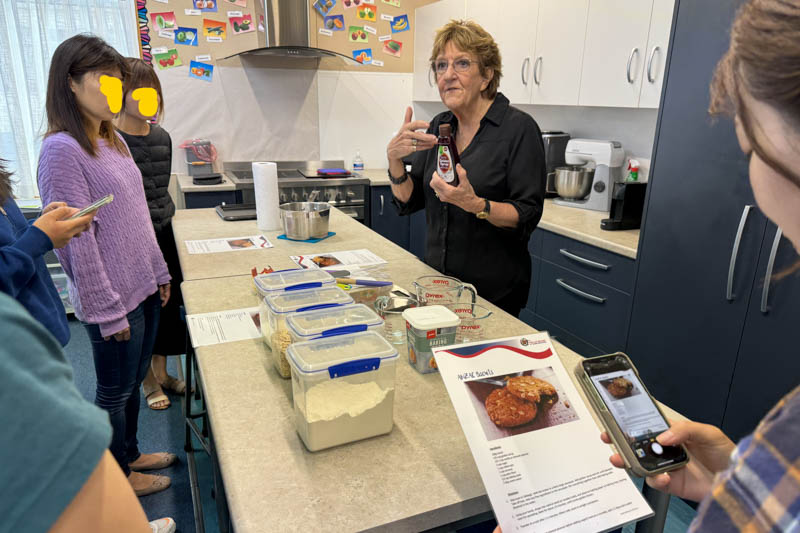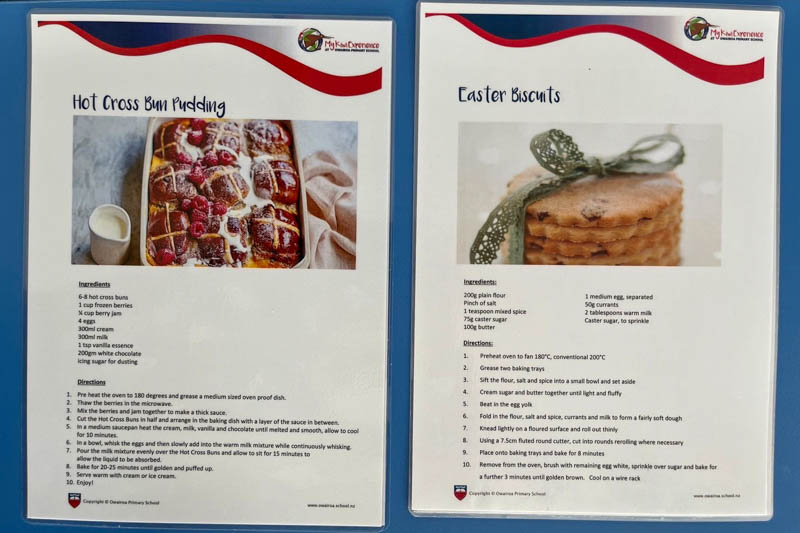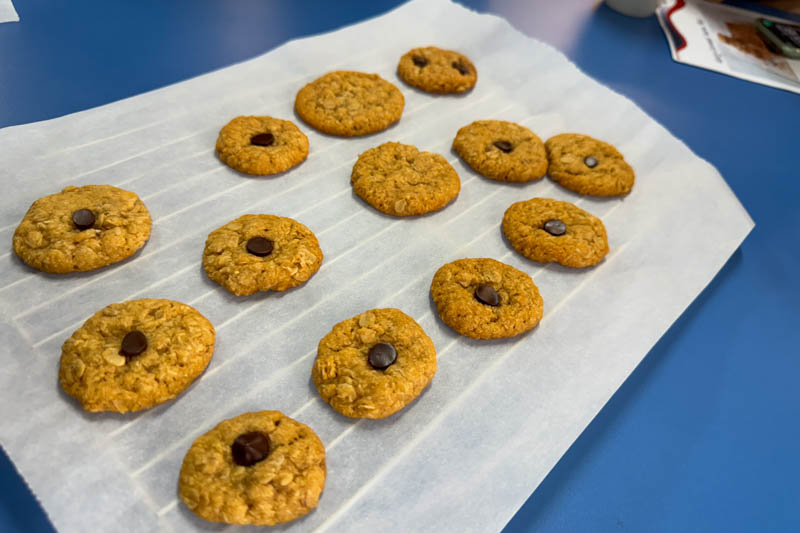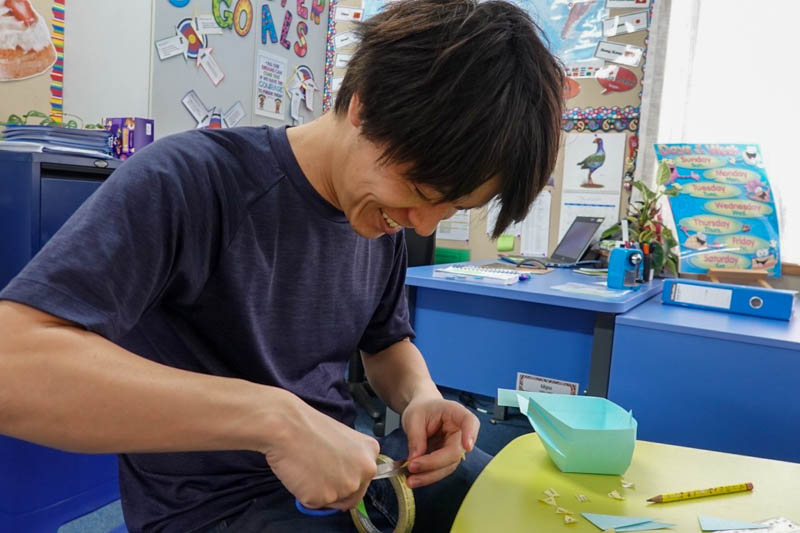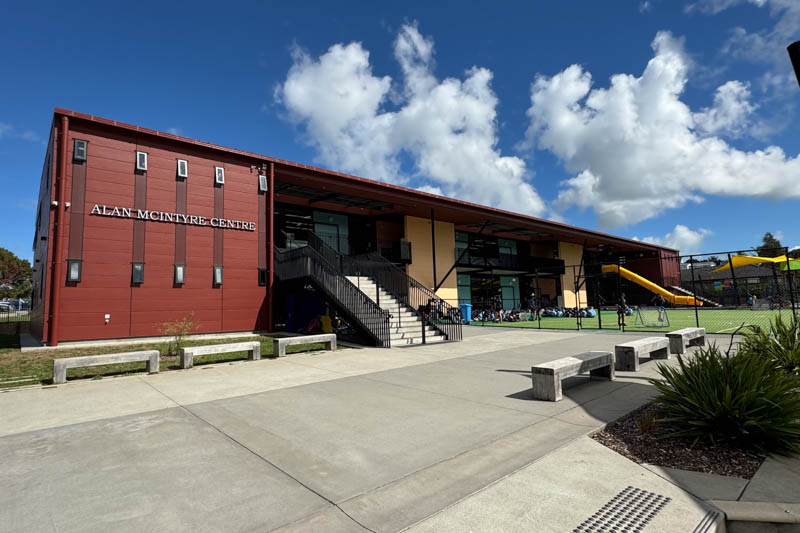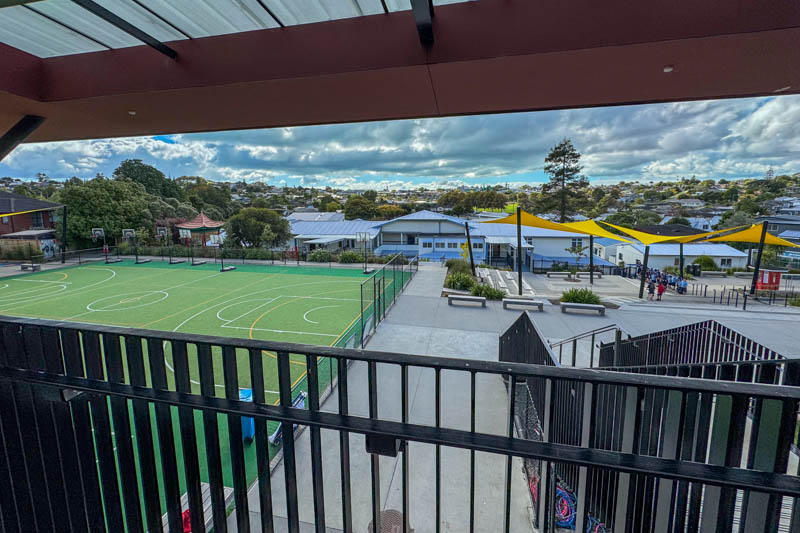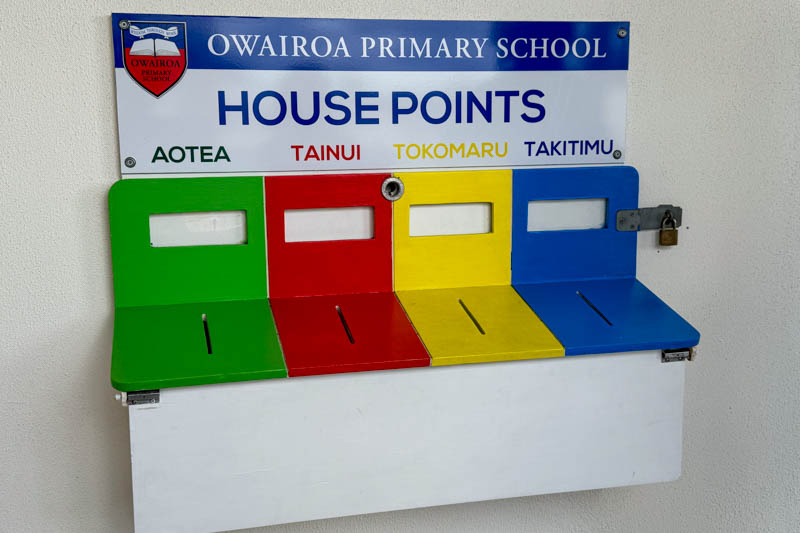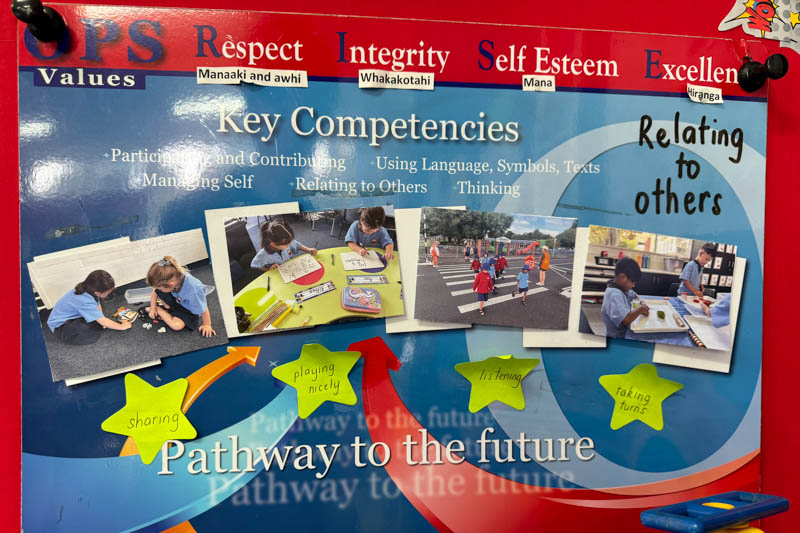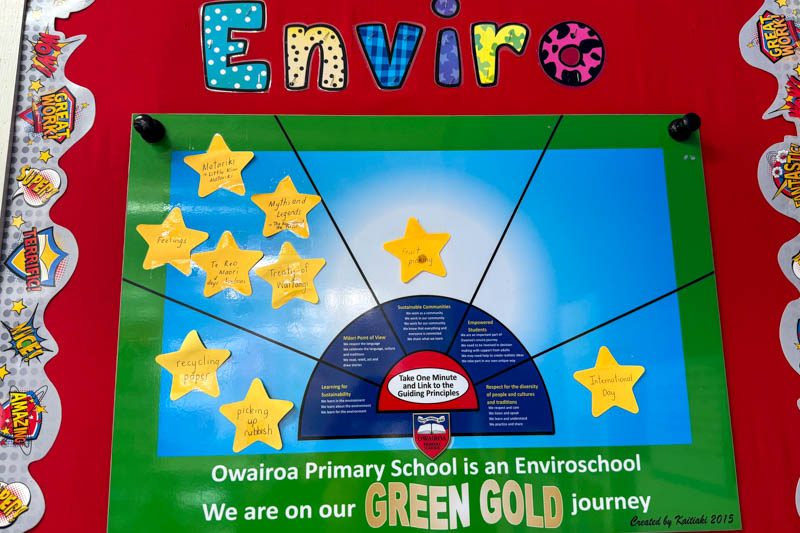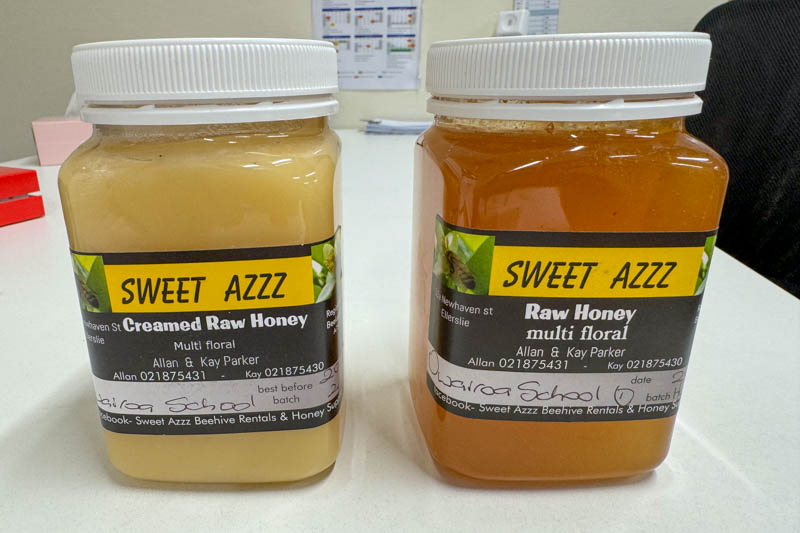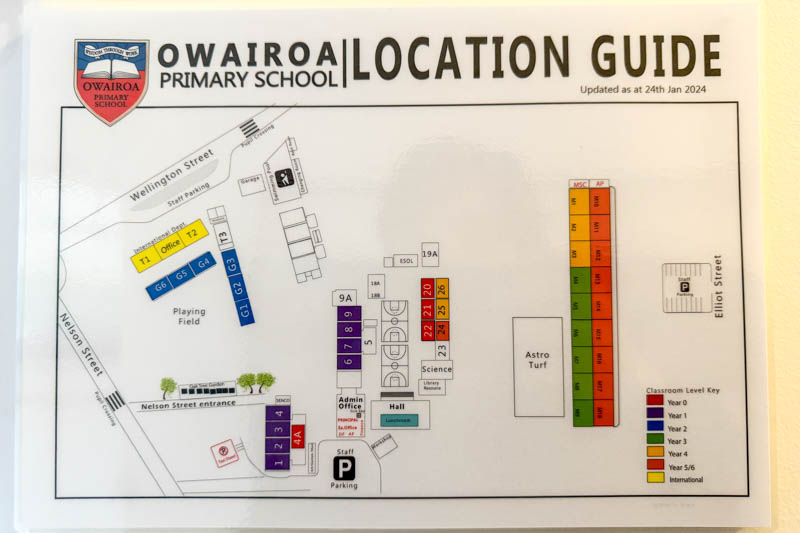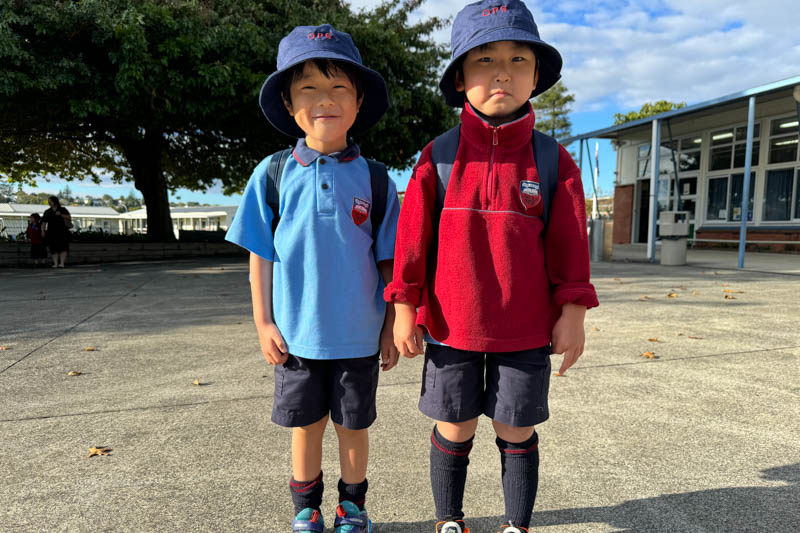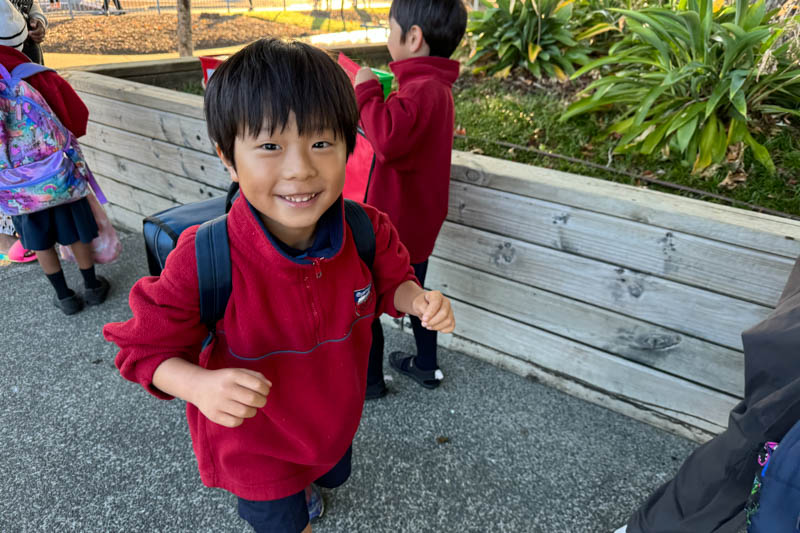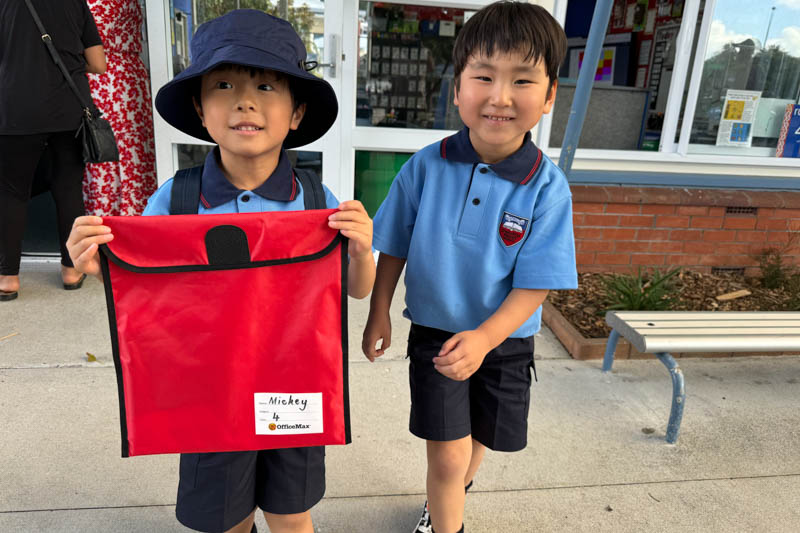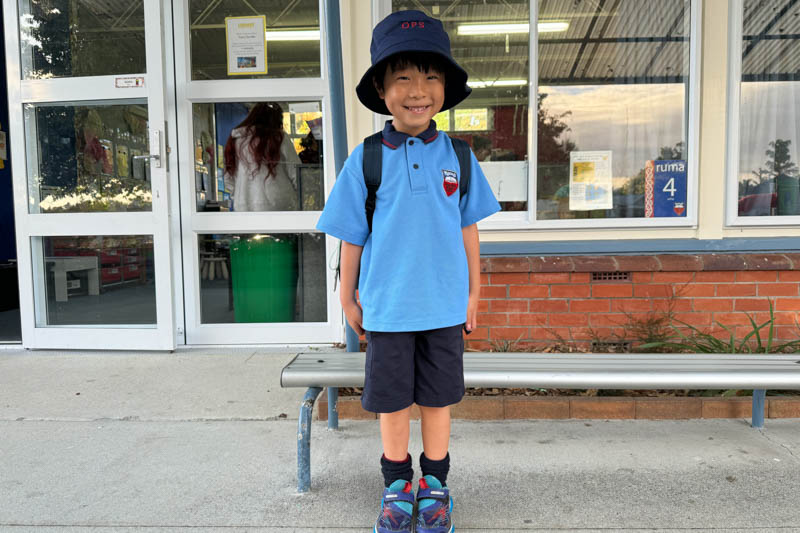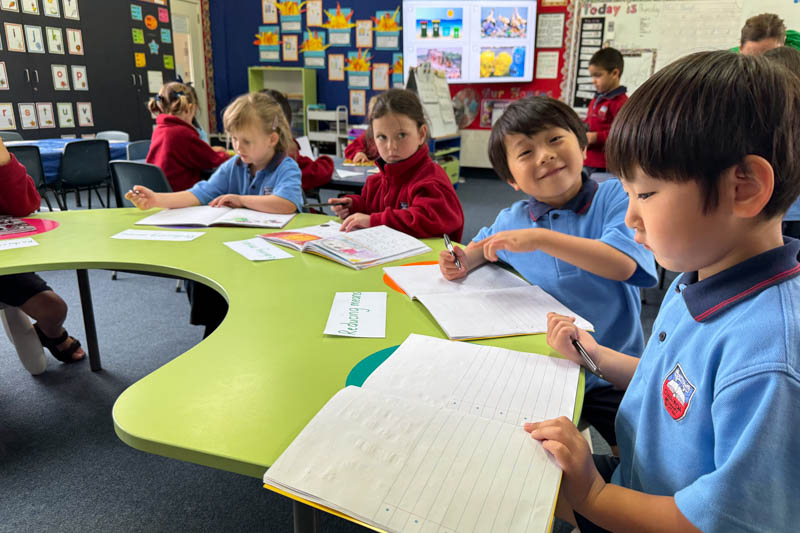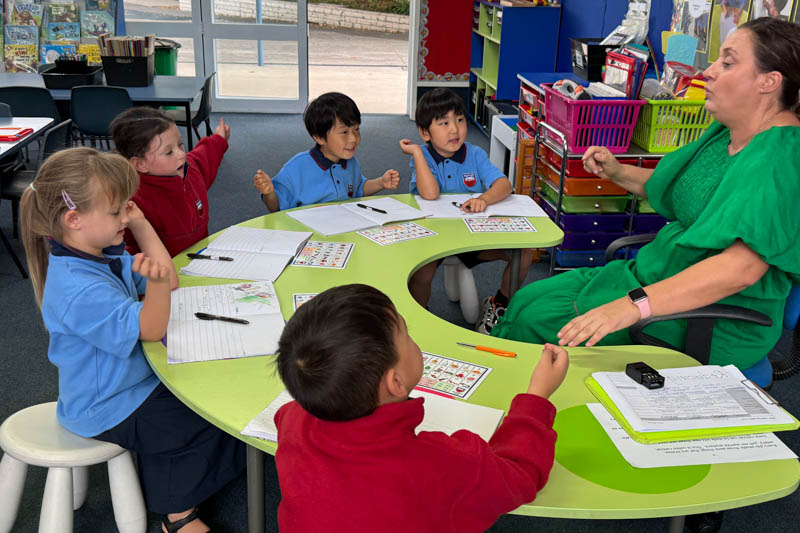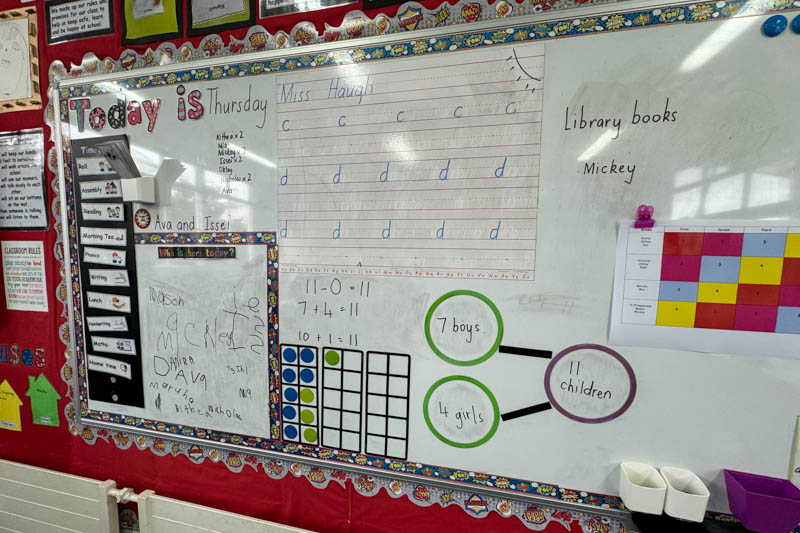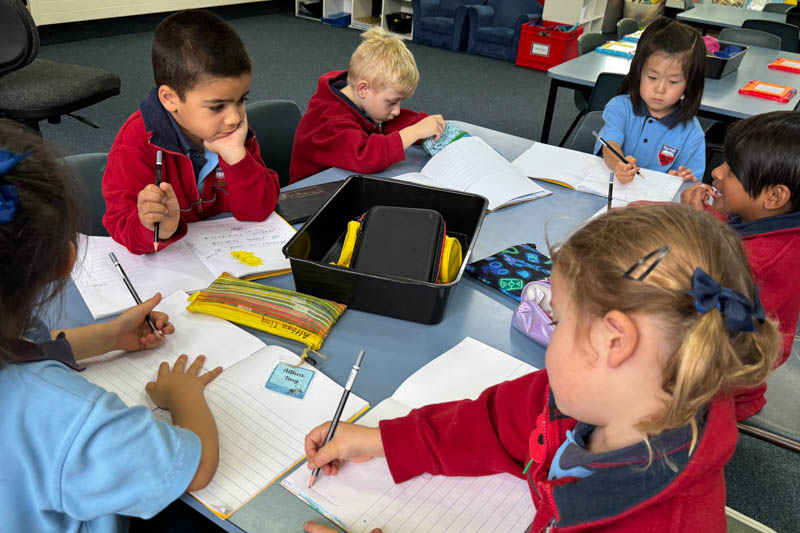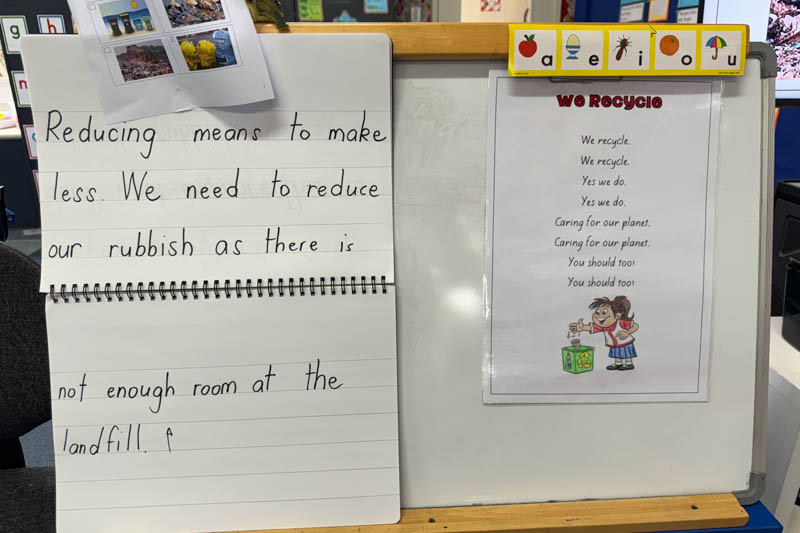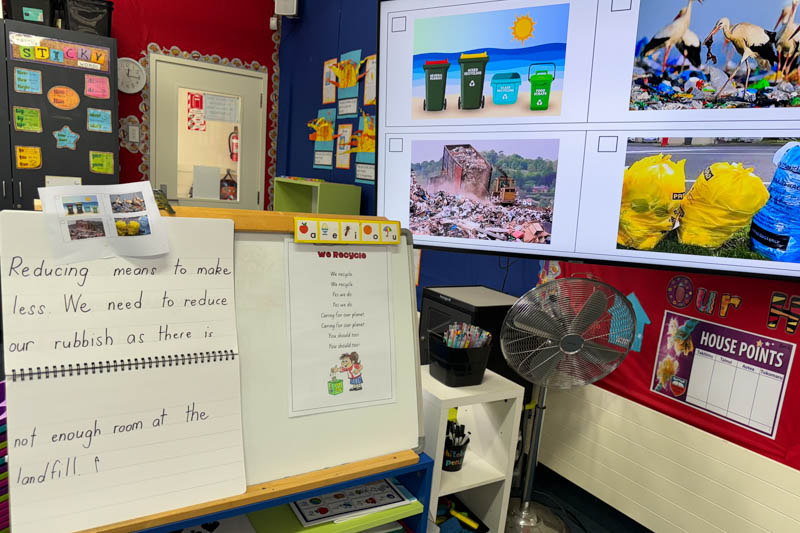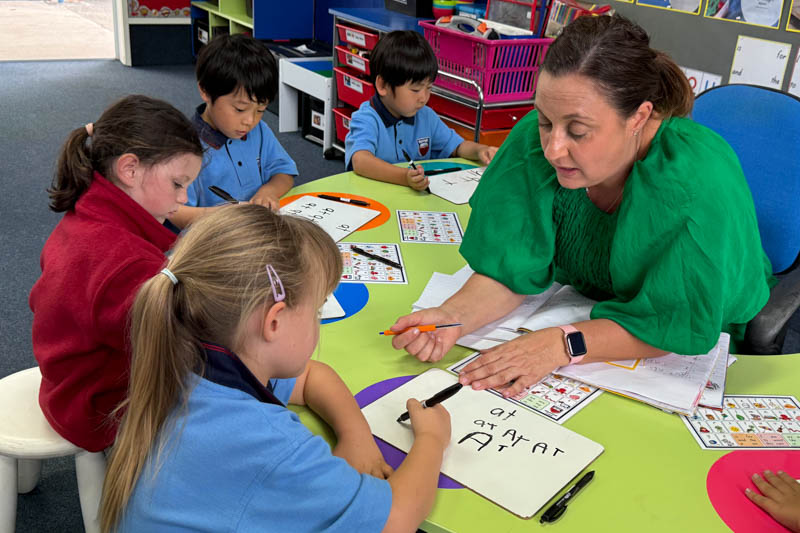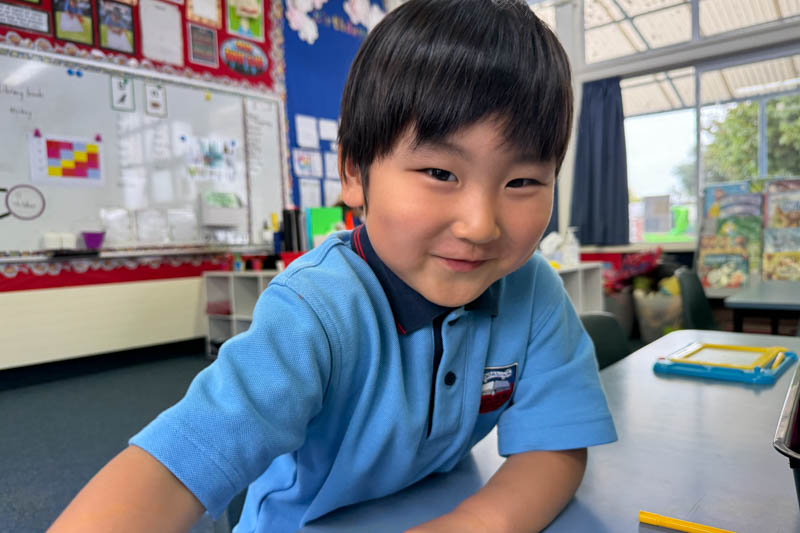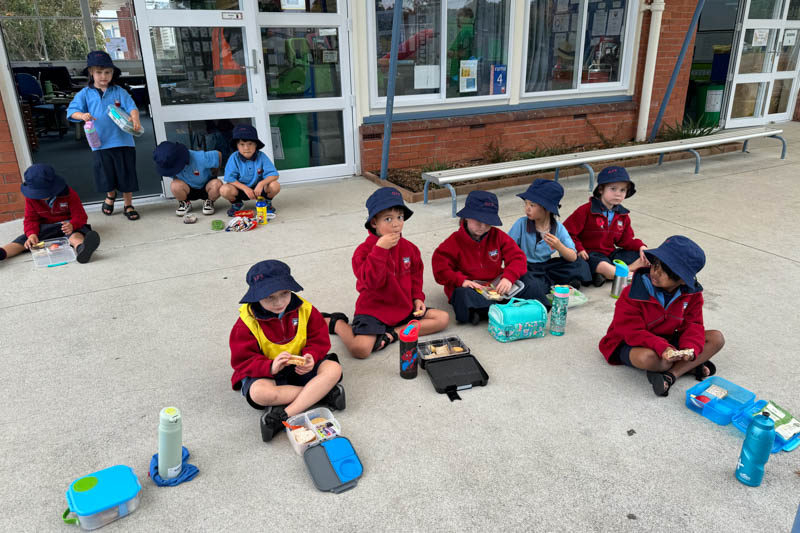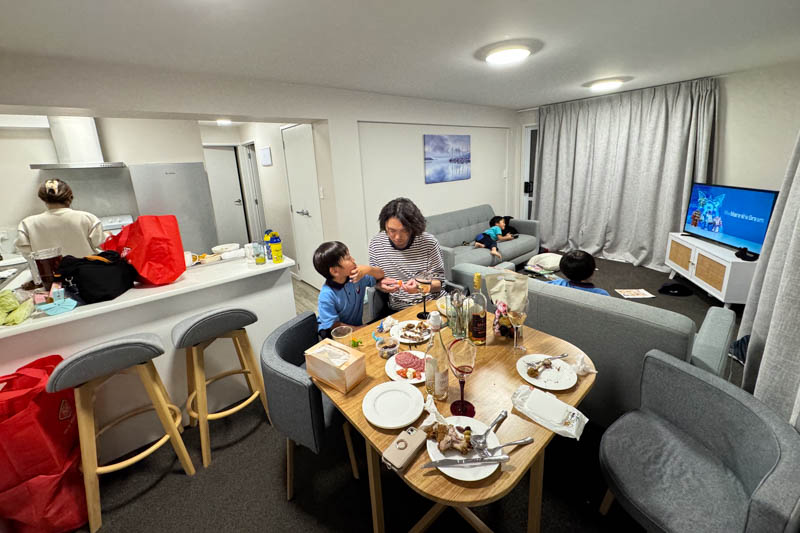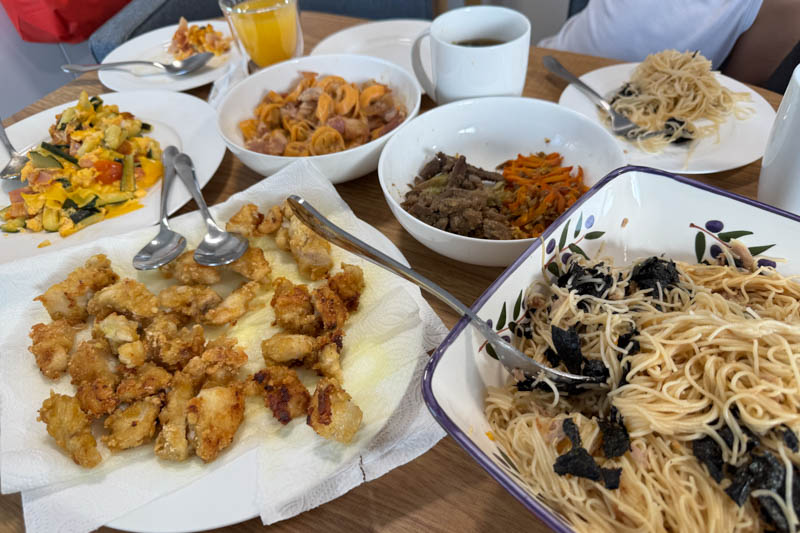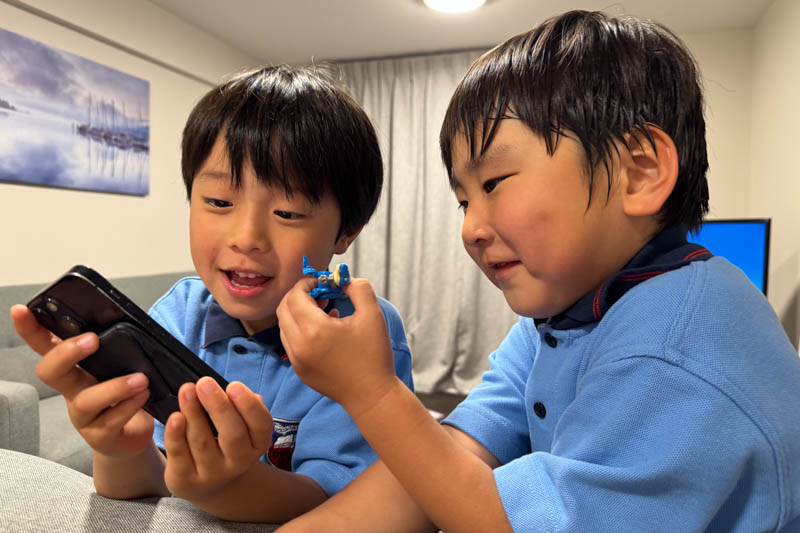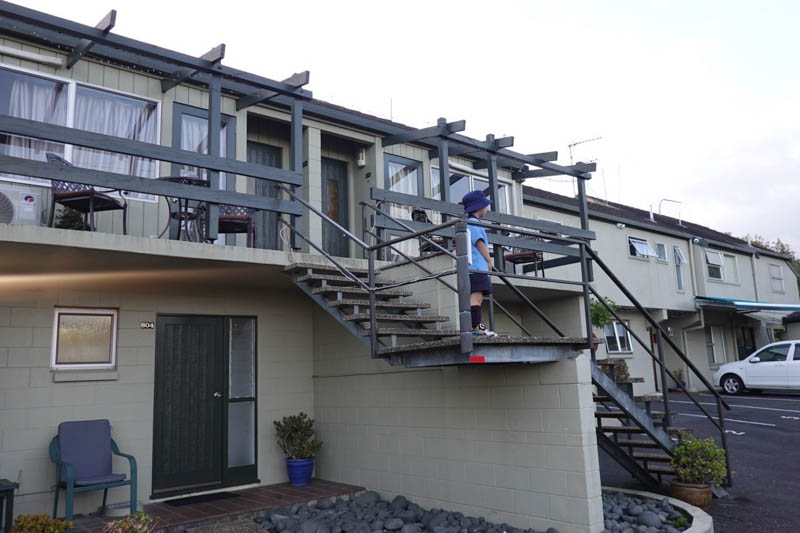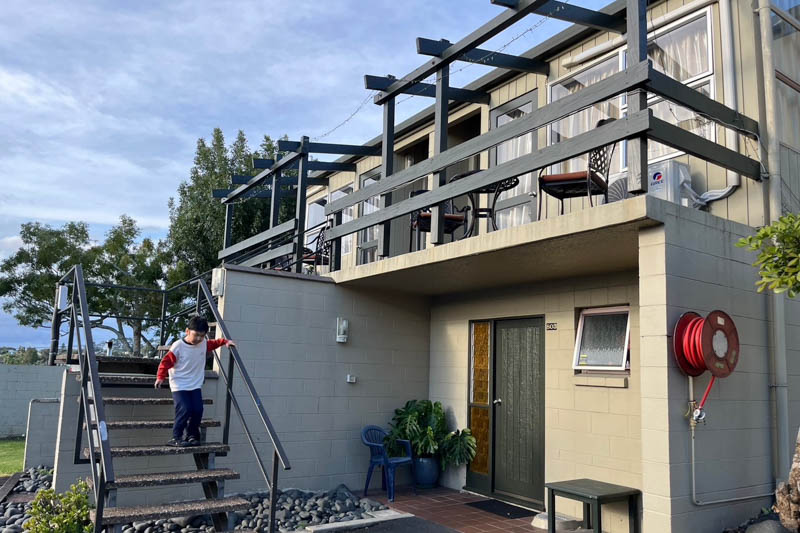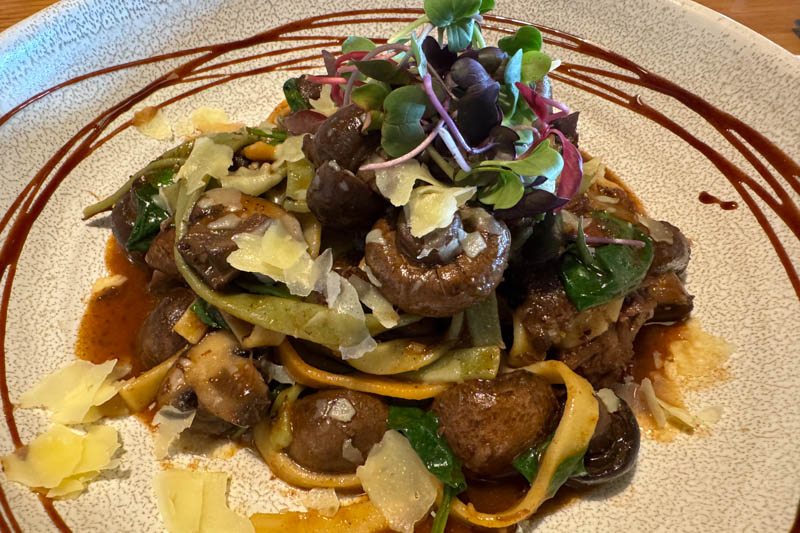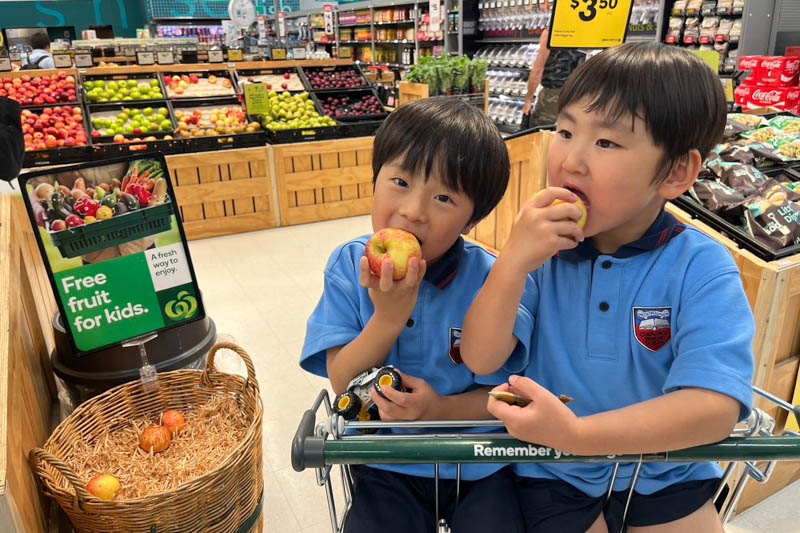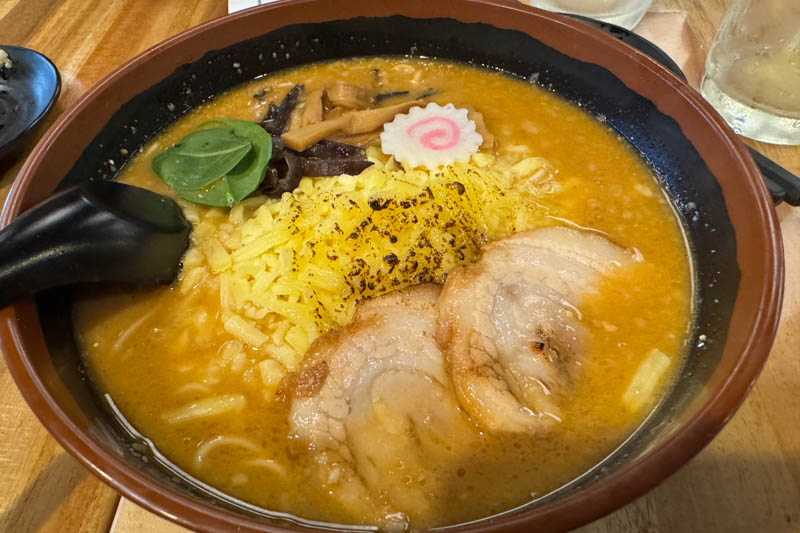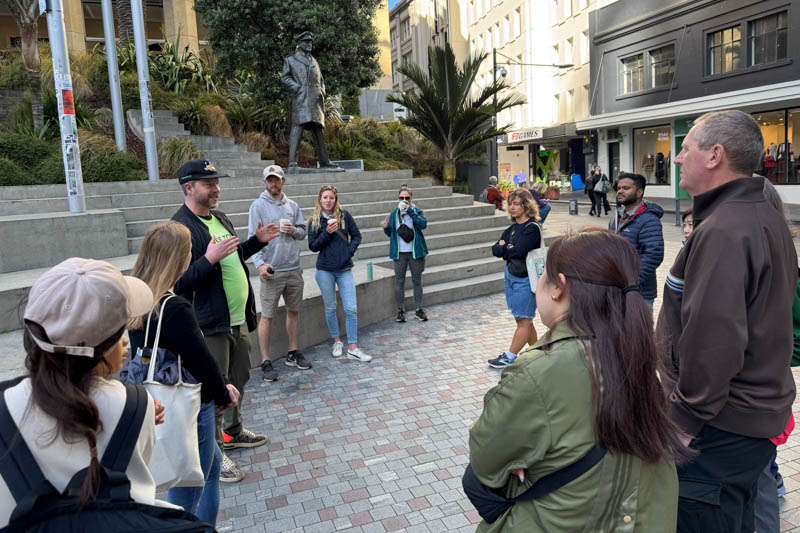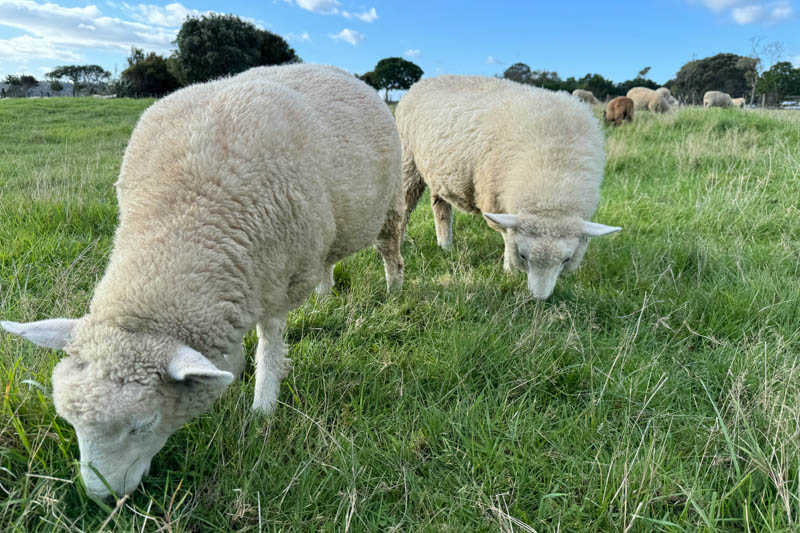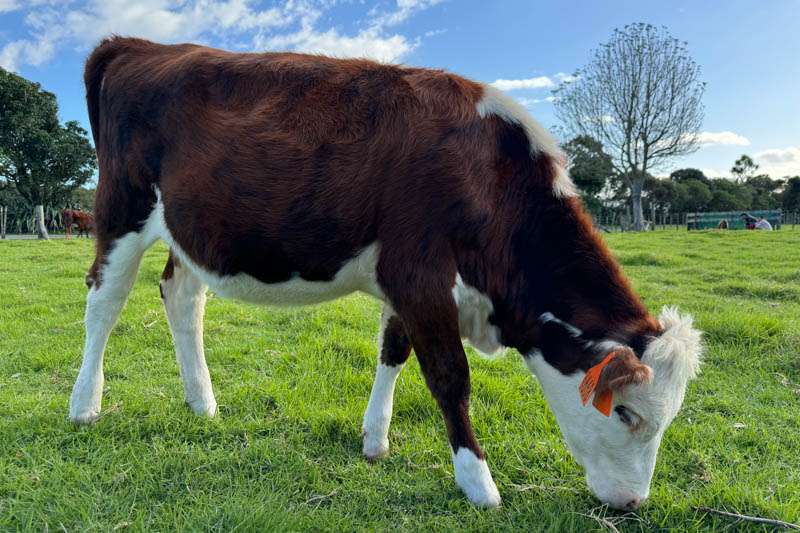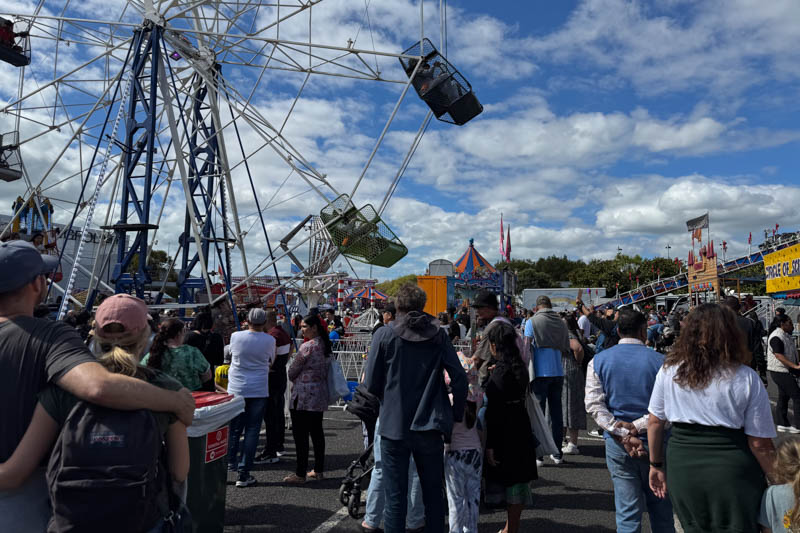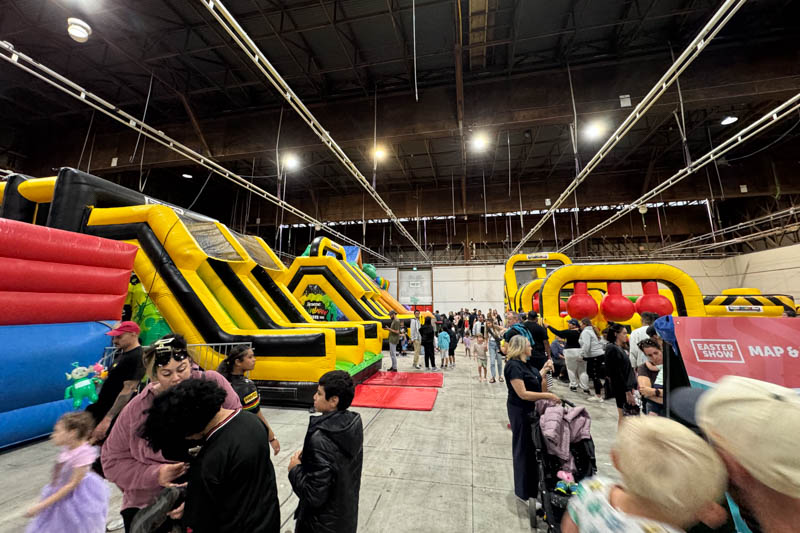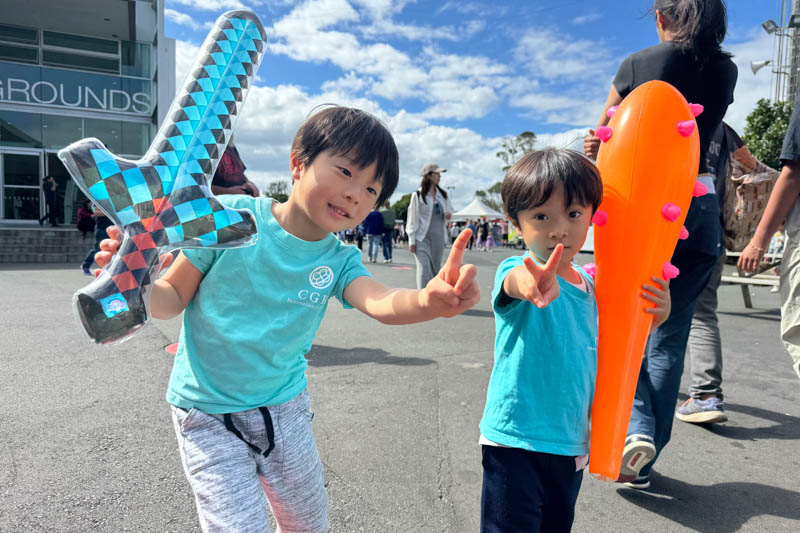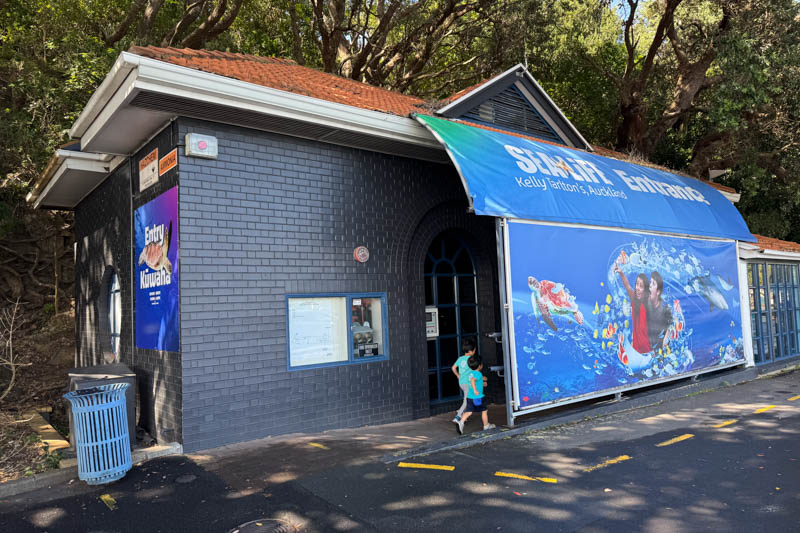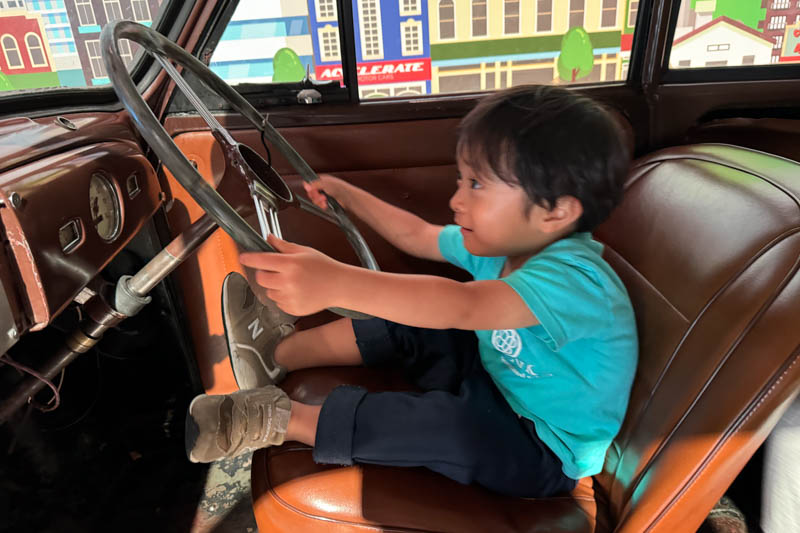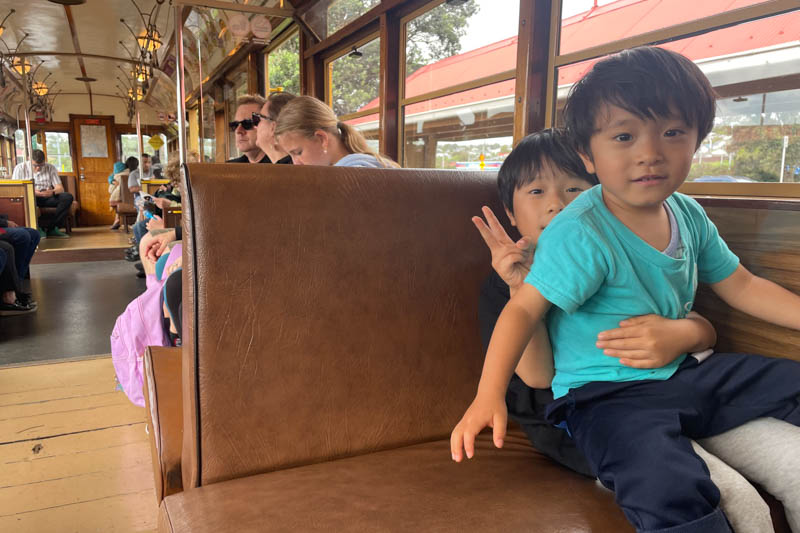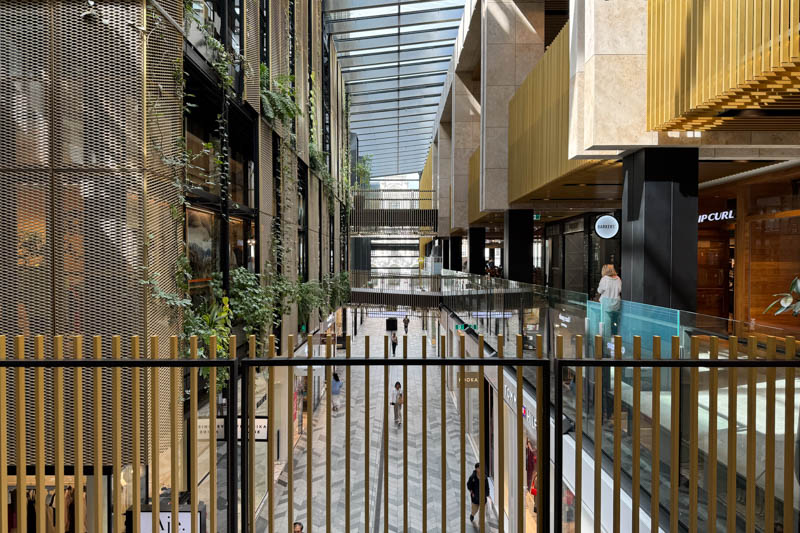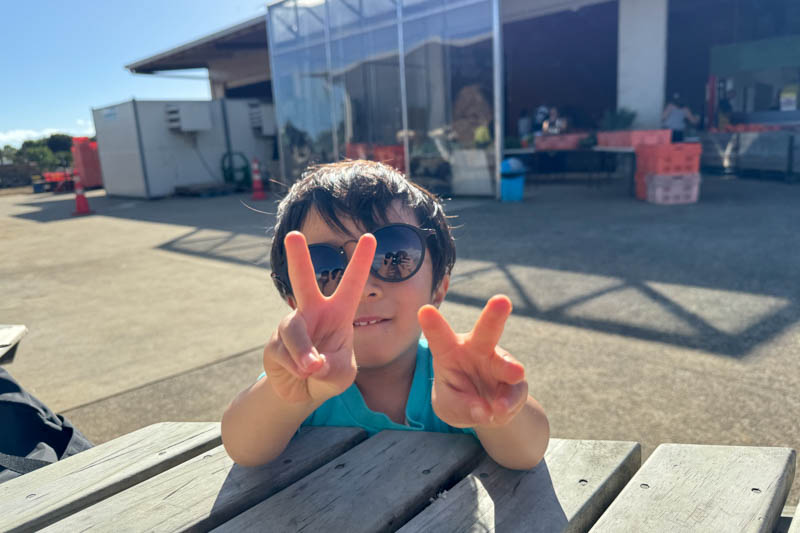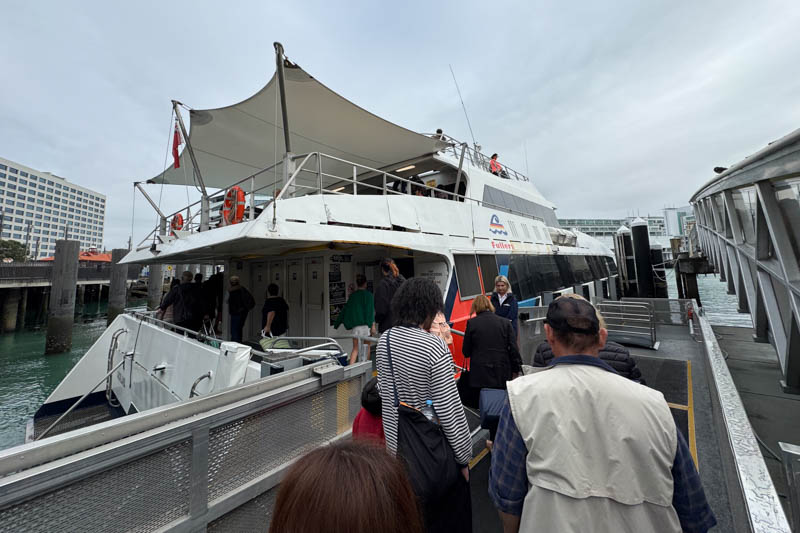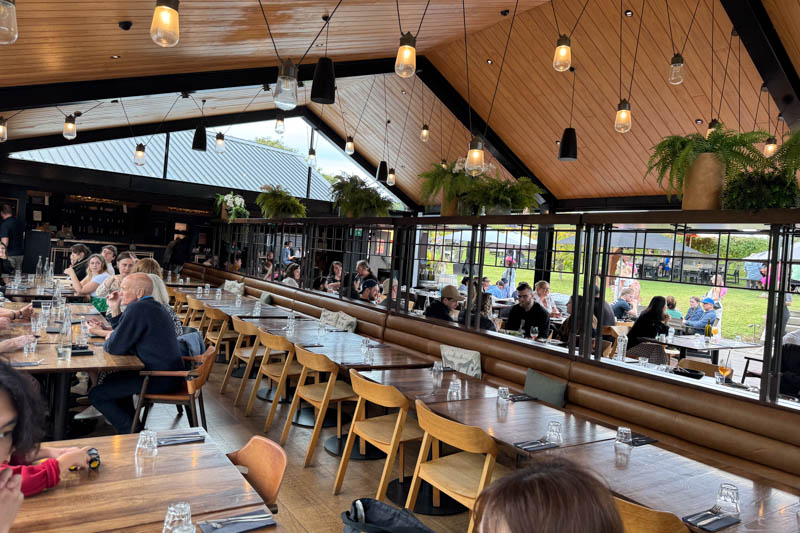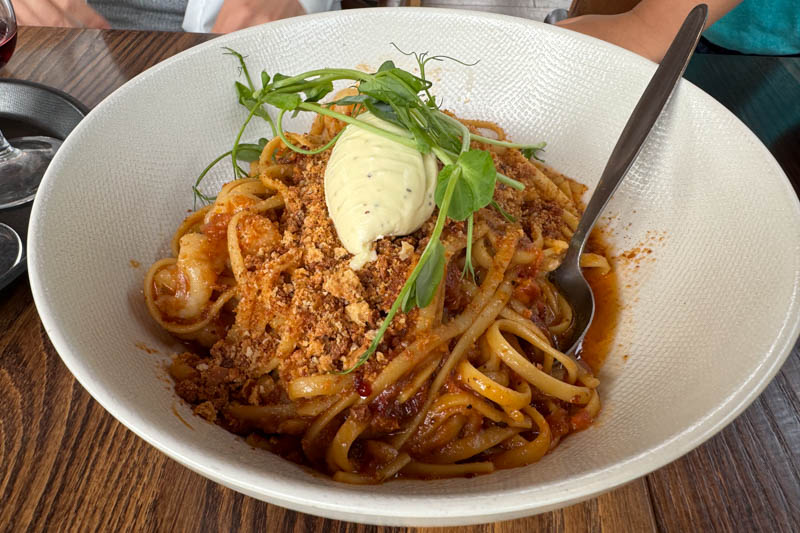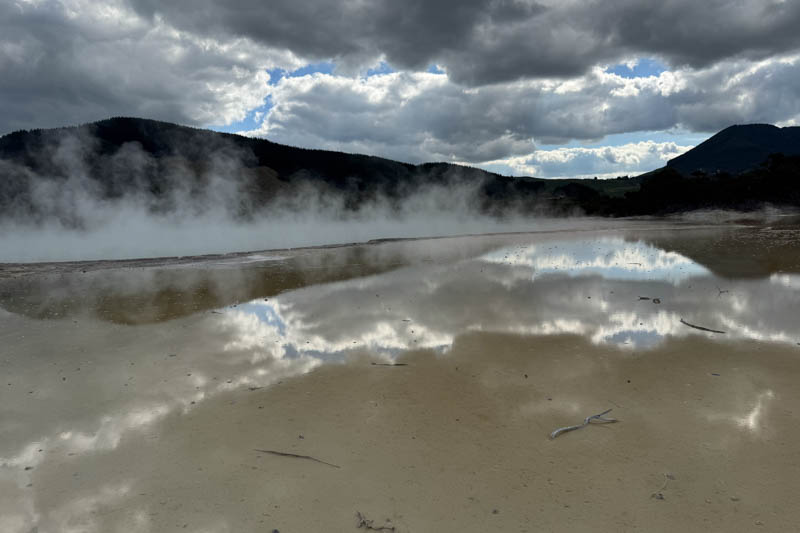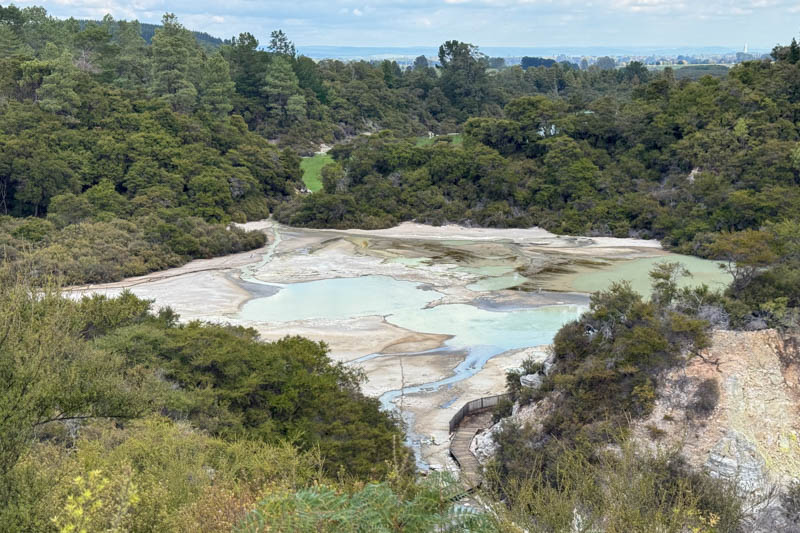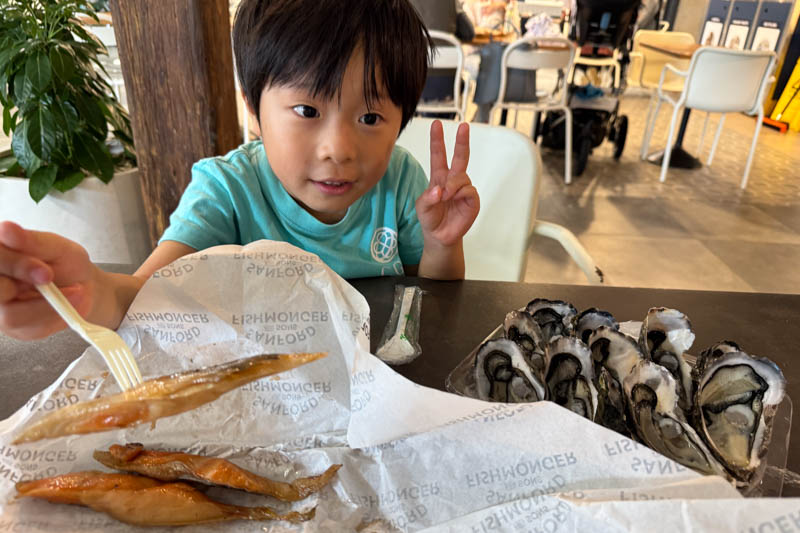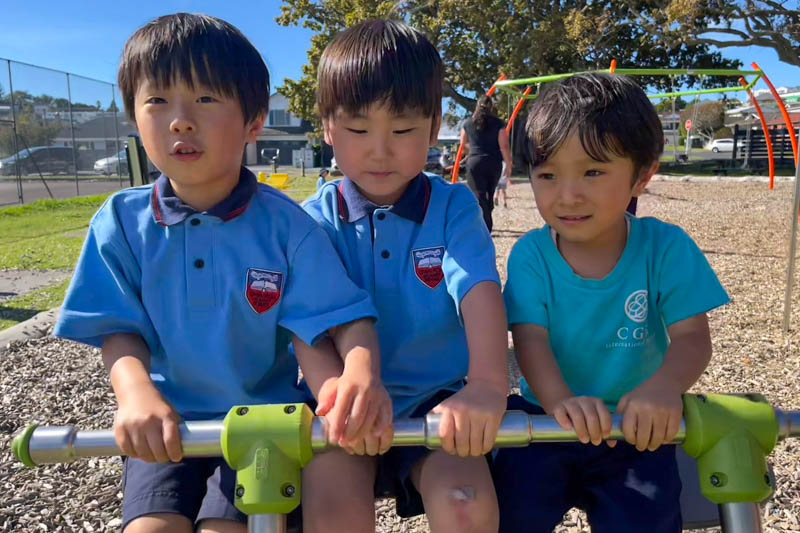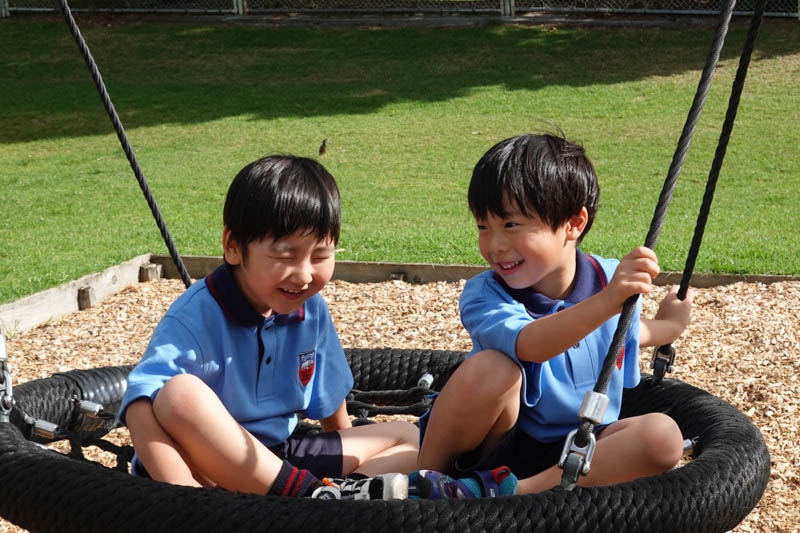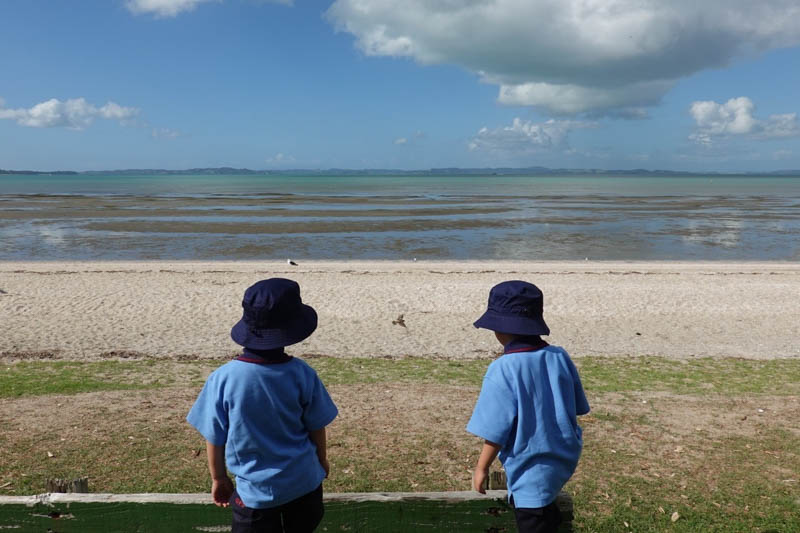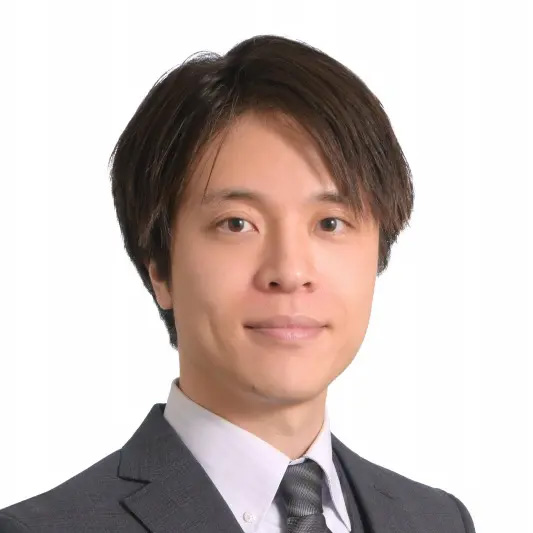[Report] Short-term Study Abroad in New Zealand - Owairoa Primary School (with video)
My name is Mr. Kai (I’m the School President of CGK International School) and I participated with my two sons in a New Zealand Elementary School Short-term Study Abroad Program from March 23rd to April 14th, 2024. I'd love to share with you some of the highlights of this study abroad program and my perspectives both as CGK management and as a parent.
Later on, I’ll also include a video (7.5 min) that will summarize my report, so please check that out as well.
During the Covid19 pandemic, New Zealand was the first country in the world to go into lockdown. I was able to go to Auckland, New Zealand in March 2020, just before they went into lockdown, to check out some program in advance.
It had always been our dream here at CGK to implement a study abroad program, but it took longer than expected to become a reality, due to the slow return to normal after the Covid pandemic. It wasn't until 4 years after the initial lockdown that schools to started to accept young students again, and we were finally able to go on our very first study abroad trip.
Overview and Features of CGK's Short-term Study Abroad Program in New Zealand
Overview
- Place: Auckland, New Zealand
- Time Period: March 23rd (Sat) to April 14th (Sun), 2024
- School: Owairoa Primary School
- Age: 5 to 10 years old
- Accompanied by Parent / Guardian: Required
- Accommodation: Motel, Airbnb etc.
Differences From Regular Study Abroad Programs
- Join regular classes with local students
A unique feature of this program is that the students don't just join a class with other international students, but they attend normal classes every weekday, just as the locals do. It's a big school with many classes, so that even if a lot of students study abroad in the same year, one class won't be overflowing with CGK students. - Students From 5-Years-Old Can Participate
Before our trip, I couldn't see how it would be of any benefit for a 5-year-old child, who hasn't even been to a Japanese elementary school, to study abroad at a local elementary school, but I ended up being pleasantly surprised. The local school's method of welcoming students was really wonderful and I think it was a really great experience for them at this age. - Parent Class (Exclusive to Owairoa Primary School)
This is the only school in New Zealand that offers a Parents Class for parents/guardians of study abroad students. This 90-minute class, from 9:00 to 10:30am Monday - Friday, covers a wide range of topics including New Zealand education and culture, cooking, English language and school life. It's free, even if you join every single class!
Leaving Japan
Our whole family, myself and my wife and our two sons (5 and 3-years-old), were all going. The kids have been overseas before, but this was their first time studying abroad.
Honestly, I felt pretty confident that they would do well in their local classes, since they have been attending CGK International School. But, at the same time, there was a good chance they might refuse to go into a classroom. While I was already starting to worry about this, the night before we left one of my sons suddenly said "I don't want to go to New Zealand. I don't want to go to school", and I suddenly felt my anxiety kick up a notch or two.
今夜出発ですが、昨夜から、ニュージーランド行きたくない、スクールやだ、と言い出した長男。完全英語環境かつ新しい友達ばかりなのが不安なのかも。人生経験長い私達大人からしてみれば、最初はしんどいし辛いかもだけど絶対いい経験だし楽しくなるよって信じてる。それを子供に分かってもらうのは難… https://t.co/wEszuOzUWC
— 甲斐実|CGKインターナショナルスクール理事長@横浜 (@mk_cgk) March 23, 2024
Location: Owairoa Primary School
An elementary school with a dedicated department for study abroad students (International Office) with a well-developed system in place for welcoming international students. They have a buddy system, where local students support international students, so even students studying abroad for the first time can feel confident and comfortable.
Owairoa Primary School is the first school in NZ to accept both parents and their children and is the only school to offer a Parent Class. For more information on this free Parent Class, check out the following article.
長男が留学しているニュージーランド(オークランド)のOwairoa Primary Schoolは、ニュージーランドで初めて親子留学を始めた小学校で、ニュージーランドで唯一、保護者へのParent… pic.twitter.com/VEeRTE1Yi8
— 甲斐実|CGKインターナショナルスクール理事長@横浜 (@mk_cgk) April 7, 2024
The First Day
The night before we left for NZ, my eldest son declared his reluctance to study abroad. But thankfully, after he started to enjoy himself in NZ and after he saw the huge school grounds, he decided the day before school started that he might want to go after all.
On our first day, we had no problems arriving and going through the school gate and finding the director of the International Office (a New Zealander, of course). We soon felt pretty impressed, just seeing our son respond naturally to the director's greeting. After getting to his class, our son had no trouble communicating with his teacher and was able to join the rest of the class in their morning activities.
You can see how impressed I was on the first day in my X posts below. As parents, we tend to worry about anything and everything, we get anxious thinking about "what if our kids don't know what to do!", but at the same time we all try to keep positive and imagine the joy they'll feel when they achieve something new.
【NZ小学校留学を嫌がっていた息子】… https://t.co/wOjQogmEp2
— 甲斐実|CGKインターナショナルスクール理事長@横浜 (@mk_cgk) March 25, 2024
We asked the head of the International Office to give us a tour of the school, which she kindly did. We were shown all the various educational environments within the school grounds and by the end we were all big fans of Owairoa Primary School.
3 Weeks of School Life
Even from Day 1, all the parents were happy they'd decided to join this study abroad program, but this journey was far from over. On Day 2 the kids went to school in their uniforms, which had been late in arriving. They looked great!
Daily Routine
- 8:20am approx.
School opens. Bring the kids to the classroom. - 8:45
Classes start - 9:00-10:30
Parent Class - 15:00
Pick up the kids in front of the classroom. Arrive earlier than 3pm if you'd like to watch the class from outside, or spend time with other parents. - 15:00-15:15
After 3pm, the kids are free to play on the outside playground for 15 minutes! They have some great playground equipment and it was nice to have the chance to interact with the other students and parents.
In addition to the lunch break, there is also a 'morning tea', so besides preparing a packed lunch, parents need to include a small snack for morning tea. There is an option to order lunches on-line.
Accommodation
- Motel
A 17-minute walk from the school. Includes a kitchen, parking and a swimming pool. - Airbnb
It may be possible to rent a large house at a lower price than staying at a motel. Some come with parking (in the suburbs you might be able to park on the street). It can be difficult to find somewhere within walking distance of the school. - Homestay
Before Covid19, this was something the school could arrange for us, but unfortunately this arrangement has been suspended.
Transportation
- Uber
Uber taxis are a convenient option. It's easy to order an Uber using the app and short distances and little trips into the city are relatively inexpensive. If you decide to use Ubers to get to school, your accommodation options can include not only motels but also Airbnbs. - Buses
The cheapest option. You can get to the city by bus or bus & train, but it will take a fairly long time. - Train
There is no station near the school, so to get to the station, you must take a bus to the nearest station. - Rental Cars
This is what we went with. It may be more expensive than other options once you include insurance, but since we got a 7-seater, we were able to visit all kinds of places with other CGK friends who joined us. So, we'd definitely recommend this option if you want to get the most out of your time in NZ. You can drive in NZ if you get an international driver's license issued back in Japan. You receive it the same day you apply. People drive well in NZ and they also drive on the left side of the road, the same as Japan, so as long as you check out the road signs that are unique to NZ in advance, you'll have no problems. Be aware that there are cameras set up to catch speeding and other violations and if caught, you'll be fined.
Life as a Study Abroad Student (Video)
See It to Believe It!
Check out the video we made of our 3-week study abroad experience. We all had such a wonderful time seeing the kids smiling and happy during our trip. A lot of the video footage was taken by me, so I apologize if it sometimes looks like a home video! But hopefully it conveys the fun we had on this study abroad trip.
Most of our footage shows life at school, but in reality, we did a lot of sightseeing, too.
Our 3-Year-Old's Experience at Farm Cove Kindergarten
This study abroad program is generally for students 5 years and older, but they also kindly arranged a kindergarten for my youngest son to attend. It was a single-story kindergarten with a garden and he loved it so much that he didn't even cry on the first day! Here, too, the natural and friendly welcome helped our son to adjust without any issues.
Te Whāriki is New Zealand's curriculum for early childhood education. The emphasis is on social and cultural learning and relationships with a variety of people. Each child has a 'Learning Story', a book with photos and comments from the teacher, similar to the Correspondence Notebook (Renraku-cho) used in schools in Japan, that provides information on the child's activities of the day and their growth.
Sightseeing in the Howick District
Owairoa Primary School is in the Howick District, where our accommodations were also located, it's an area with several upscale residential neighborhoods. It's known for its cafes and restaurants, and it has a large supermarket. It's a peaceful suburban area, a very comfortable location to stay.
Driving from Howick to the city takes about 25 minutes, but, depending on the time of day, it may take longer because of the traffic. We visited many different places and found that even at locations like the zoo or the aquarium there wasn't always enough parking, so we'd recommend that you check out the parking situation in advance. It may help to look up blog posts for recommendations on local street parking, etc.
Below are some of the places we visited in Auckland, generally listed by most recommended first.
- Auckland Free Walking Tours
Free walking tours within the city. They can last for 2 to 3 hours so keep in mind the age of your child. It's ok leave the tour early. It can be a good idea to go on a walking tour and then make a plan of where in the city you want to visit. The guide talks a lot about the history of Auckland and New Zealand, so if you did some research beforehand it would help you understand the English better on the day. The tour is free, but if you'd like to, you can give the guide a tip. - Ambury Farm (Ambury Regional Park)
You can meet and touch sheep, horses, pigs, chickens and other animals who live in on a big farm. The kids love it! - Auckland Zoo
If you're lucky, you might get to see New Zealand's national bird, the Kiwi! - Easter Show
An Easter event that is held for a limited time during the Easter period in March and April. It's only on for a limited time, but it's quite a big event and the kids always enjoy it. - SEA LIFE Kelly Tarlton's Aquarium
It's not as big as many Japanese aquariums, but the display methods are quite ingenious and it's a pretty enjoyable activity. - MOTAT (Museum of Transport and Technology)
It's divided into two buildings and you can travel between them on a free tram. It's near Auckland Zoo. - Sky Tower
If you visit towards the end of your stay, when you are more familiar with the city, you may enjoy the view more. Some areas have age restrictions, but there are plenty of other attractions you can visit that make the most of being up high. Sky Tower also includes a casino. - Sylvia Park Shopping Centre
The largest shopping center in New Zealand.y - Commercial Bay
A new shopping center in the city. - Pakuranga Night Market
Every Saturday night a night market is held in the underground car park of a big shopping center. Auckland's first night market was held at Pakuranga in 2010 and is the largest in New Zealand. - Western Springs Lakeside
A natural park near Auckland Zoo and MOTAT. - The Strawberry Farm
Close to Ambury Farm. The place to go for a delicious strawberry ice cream. - Waiheke Island
A small island just 40 minutes from the city by ferry. It's famous for its wineries and olive groves, but these may not be much fun for children.
Unfortunately, we didn't get a chance to visit the Auckland War Memorial Museum, but we want to check it out next time.
Some other places we visited, driving a few hours to get there, were the Waitomo Caves and the Rotorua district. Although these places are a bit far away, they are definitely worth a visit. Another attraction that would involve some driving, is 'Hobbiton Movie Set Tours', which offers sightseeing tours of the locations for Lord of the Rings and The Hobbit movies.
Pros and Cons of Studying Abroad When Young
This time we had a 5-year-old and a 3-year-old, and both were able to participate without any problems. Of course it depends on the individual child, but even at 3 years old it's fully possible to start considering a study abroad program.
Let's take another moment to consider the significance of studying abroad.
For the sole purpose of improving English, a short-term study abroad program of 2 to 4 weeks is really not enough. You can't expect any kind of dramatic improvement in that short amount of time. But there is one major benefit: it can change their awareness and attitude towards English and communication. Language is an important communication tool and if children can be shown the purpose and reason behind acquiring a language, it will be an invaluable experience for them. Particularly in early childhood, it can be difficult to imagine and understand the meaning and purpose behind things. We believe it's important to have successful experiences that can help them become aware of these things in a way that is easy for them to understand.
Just being able to say "This one, please" or "Thank you" to a stranger in another country is an exciting first step that they can be proud of.
So, what is the importance of studying abroad if it's not for language acquisition?
This was the first time for my sons to live overseas for a period as long as 3 weeks. They enjoyed their time in New Zealand, in an environment completely different from Japan and centered on spending time with their new classmates and teachers. It's a wonderful achievement to learn how to enjoy life in a completely different environment and for us parents, (and as school management), that's exactly what we wanted to see. Seeing how our son could speak up in class as if it was completely natural and his big smile whenever we picked him up from school, was clear proof he was having an amazing time each day. On the other hand, we were secretly a little bit pleased to hear him say: "CGK is more fun!" As parents, we were happy enough simply seeing them having fun, but we were also able to see their personal growth and were left feeling that there is great potential in the study abroad experience.
Our sons are now developing an interest in the world around them and this study abroad experience definitely contributed greatly towards that. And by "world", we don't simply mean the world abroad, but in a wider sense of the word. We hope that the valuable experiences they have while studying abroad will expand their worlds and lead to an interest in all kinds of new challenges and environments.
Changing the subject a little, we found it was cheaper to fly back via Hong Kong, rather than taking a direct flight. So, we stayed 4 nights in Hong Kong before going home to Japan. Hong Kong was also very different to NZ and Japan, so it was a good experience for the kids. If you live solely in Japan, you will only be aware of the Japanese daily norms and values that you encounter in your everyday life.
Knowing that the things that are normal for us may only be part our own small community, and having the ability to think about the wider world and be considerate of people living a different life, is incredibly important. We believe that studying abroad is not only about getting involved in various activities, but also about developing critical thinking skills and learning to become considerate of others and their surroundings and that this, in turn, will contribute to our own happiness.
New experiences spark new thoughts and ideas. The earlier someone can experience this, the more open minded they will be, with a broader life perspective, which will create significant change in their daily life. Big differences will be seen in the depth of their thoughts and feelings on a day-to-day basis, and they will be given an amazing jump start in their daily development. Sometimes they will come to understand things in just a few weeks that others will never be able to, even after 10 years.
As parents, we want to do our best to support our kids (not spoil them), so they can continue to have these kinds of experiences. Here at CGK, we are committed to providing the opportunities and the information needed, and to support the children's growth so they are fully prepared for their study abroad experience.
The video below will be a helpful reference for those considering studying abroad. Please take a look if that might be something you are interested in.
As well as Owairoa Primary School, Mayu Sugitani, our Study Abroad Coordinator, visited 7 other schools (mostly middle schools), and I visited 3 other schools, and we both felt New Zealand, and the local school environment, is a great place to study abroad.
Future Aim of CGK Study Abroad Trips
インターナショナルスクールで学んできたからこそ、ニュージーランド現地校の全く新しい環境でも、英語面以外含めての適応力が付いていたんじゃないかと感じています。この留学の中で子供達は毎日、学校に行くことを楽しみにしていますし、先生や他の現地生と普通にコミュニケーションをとっています。… https://t.co/wL48TIX8o4
— 甲斐実|CGKインターナショナルスクール理事長@横浜 (@mk_cgk) March 27, 2024
ニュージーランドに来て、色々な学校を訪問させて頂いて、自分たちが横浜でこれからどうスクールを発展させていくかのアイデアやイメージがあふれてしまい、時間がいくらあっても足りない。
— 甲斐実|CGKインターナショナルスクール理事長@横浜 (@mk_cgk) April 8, 2024
現地オークランドのPrimary SchoolもIntermediate SchoolもHigh…
As you can see from what I wrote above, we had a truly amazing time in New Zealand. For this reason, we'd like to continue supporting our student's growth and encourage them to have the amazing experience of studying abroad, while not pushing them to do so.
We'd also like to place even more emphasis on the importance of the environment for children to grow and develop. CGK will also accept a number of international students, in order to create a diverse environment for our students!
CGK will continue to grow, as life-long learners and risk-takers, who are not afraid of changes and new challenges. Please continue to look forward to CGK's exciting future initiatives!
Author Profile
-

-
Minoru Kai - School Founder, CGK International School (Japan)

Born in 1984, father to two children.
After residence and stay in Australia, Canada and America, worked at an advertising agency concurrently in overseas exhibition work and domestic advertising work.
He also founded CGK International School (Yokohama) from scratch and provides management consulting for international schools.




















